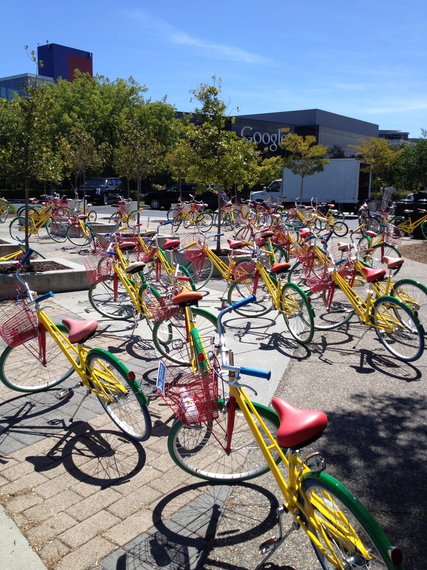
More than we believe in God, we believe in meritocracy.
Our society has faith that talented, innovative and hard-working individuals deserve to be significantly rewarded far beyond the daily wage of others. I probably do not know anyone who thinks we should all be paid the same amount. However the level of inequality that we justify on the basis of merit has reached historical and global record heights. This is the god, the false idol, we most often worship.
Jesus cared a great deal for the poor. Christians believe that all people are equally loved by God. However, the institutional structures that protect human dignity in our society are becoming frayed and worn.
In his book Capital in the Twenty-First Century Thomas Piketty makes five observations that modern Christians should know in order to take the teaching of Jesus seriously.
1. Capital Accumulates
Perhaps Piketty's most startling claim is that history may still prove Karl Marx (1818-1883) correct. So far Marx seems wrong in his views on religion and the withering away of the state. Marx fails to understand the usefulness of prices determined by supply and demand as a way to organize society.
However Marx may be right in his description of the way capital tends to become concentrated in fewer and fewer hands. This occurs in part because of economies of scale through which larger investors receive higher returns. The situation may become so extreme that it leads to the social conditions that ultimately destroy the basis for modern democratic states. What effect do oil oligarchs have on the prospects for representative government Russia?
2. America's conflicted heritage with regard to inequality
Piketty believes that Europe and America have two different primary problems when it comes to inequality. He predicts that in the future Europe will face increasing inequality because of a declining population which dampens growth and increases the importance of inherited wealth.
Americans have conflicted attitudes about inequality in part because of our history. In many respects during the 19th century we were two different nations. The north was characterized by a great deal of opportunity and upward mobility with a flood of immigrants creating new wealth.
However, in the south forty percent of the population were slaves. The economic value of these slaves was actually equal to the value of the land their masters owned. As a result the plantation owners controlled more wealth as a class than the nobility of Europe.
3. In thirty years tax policy has made American society vastly more unequal
Piketty points out that during the 1950s and 1960s the United States had more equally distributed income and greater social mobility than France. Since the 1980s this has changed radically. During the 1980s in the United Kingdom and the United States the fear that other nations were surpassing us led to very large decreases in the tax rates on the highest tax brackets.
If you grew up before the 1980s you have practical experience of what a more equal society felt like. The quality of education was more even across various school districts. Immensely wealthy individuals played less of a role in setting social priorities. Less of a gulf distinguished the experience of the rich and poor. There were no skyboxes in sports stadiums and Americans had more experience with people from different social classes.
J. Bradford DeLong writes:
"Last generation's Michigan governor and American Motors president George Romney lived in a large-but-not-abnormal house and bossed a company that created lots of good jobs at good wages. This generation's Massachusetts governor and Bain Capital CEO Mitt Romney has seven houses worth perhaps $25m in total, and bossed a company whose core business model appears to have been exploiting legal anomalies like the fact that pension funds have little control over their money after it's invested."
In large part as a result of tax policy we are on track to becoming the most unequal society the world has known since the Industrial Revolution. The top ten percent owns 72 percent of the country's wealth. The bottom fifty percent owns less than 2 percent of the wealth. Piketty writes, "wealth is so concentrated that a large segment of society is virtually unaware of its existence..."
From 1977 to 2007 the richest one percent absorbed nearly 60 percent of our economic growth. The growth rate over that period for the bottom ninety percent has been stagnant at less than 0.5 percent per year.
4. In the future there may be no middle class
In 1910 there was almost no European middle class. The upper ten percent owned 90 percent or virtually all of the wealth. The middle forty percent owned the same as the bottom forty percent (each had 5 percent).
Perhaps the memory of that kind of society is the reason that other nations have maintained higher taxes on the top income brackets and why there is so much more social mobility and equality in Germany, France, Japan, Sweden and Denmark.
5. Income does not measure a person's social contribution
As Americans we refuse to admit that wealth does not measure the value of a worker's contribution to society. Last year hedge fund manager Steven Cohen made $2.3 billion dollars despite a $1.8 billion dollar fine when he plead guilty to insider trading. At the same time the average pay for a social worker is $38,000 per year. Hospital orderlies make on average $24,190. Childcare providers are paid $21,490.
In Silicon Valley where I live it currently costs $30,000 per year to rent an apartment. The working poor, the ones who cannot even afford a place to live, often contribute a great deal more to society than the highly paid people who merely move money around.
I do not share Thomas Piketty's confidence that vastly different societies and epochs can so easily be compared with economic statistics. But Christians should be grateful to someone who shows that we do not need to live by the myth that the market will ensure that everyone is paid according to their merit.


